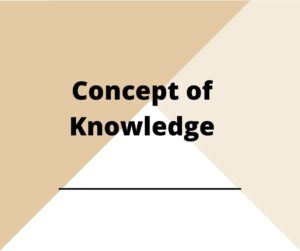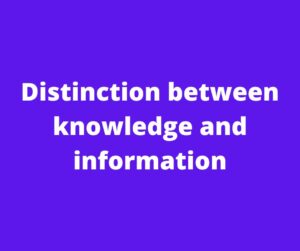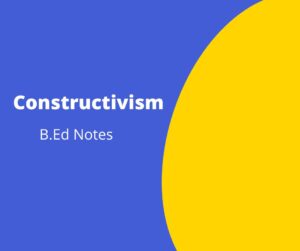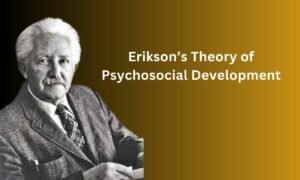Etymologically, the term curriculum is derived from the Latin word ‘currere’ which means run or run-way or a running course. Thus curriculum means a course to be run for reaching a certain goal
Arthur J. Lewis and Mild Alice (1972) define curriculum as a ” Set of intentions about opportunities for engagement of persons to be educated with other persons and with things (all bearers of information process, techniques, and values) in a certain arrangement of time and space”
Meaning of Curriculum
A curriculum means, the total situation selected and organized by the institution and made available to the teacher to operate and translate the ultimate aim of education into reality.
In the word of cunningham, the curriculum is a tool in the hands of the artist (the teacher) to mold his material (the pupil) according to his ideal objectives in his studies (school). The materials are highly self-active, self-determining human beings who react and respond consciously.
The curriculum is one of the most important items in the educative process. The curriculum, in fact, is the fundamental problem that determines the”warp’ and ‘woof’ of the process of education, and what to do and how to do it in the very essence of the curriculum.
Scope of Curriculum
The curriculum is, therefore, very comprehensive in its scope. It touches all aspects of the life of the pupils-the need and interests of the pupils, the environment which should be educationally congenial to them, ways and manners in which their interests can be handled and warmed up, and the procedure and approach which cause effective learning among them, the social efficiency of the individuals and how they fit in with the community around. It is intimately related to the individual as a member of society.
It embodies the educational philosophy, the value which it aims to achieve the purpose it wants philosophy, the values it aims to achieve the purpose it wants to realize, and the specific goals that it wants to achieve.
The emphasis is on the child in, the total education of the child, all subjects like history, geography, science, and language are but tools. These are the means and therefore, the children must not be made to fit in many studies
Principles of curriculum construction
In the construction and organization of the curriculum for any discipline, we usually mean to think about the types of learning experiences to be given to the pupils at various ages and levels for the realization of the goals at their levels and age.
The term construction is not an ordinary one, which needs careful attention where the mission is to be employed with a long-term vision. It will need systematic and sequential planning by keeping in view the principles of integration
The principles of curriculum construction are as-
- Principle of child-centered Education: The curriculum should be child-centered. In other words, while constructing a suitable curriculum, the interest, needs, capacities, abilities, age, and level of intelligence of children should be kept in full view and close attention.
- Principle of relation with life: In the curriculum, only those subjects should be included which are relevant to actual living directly. The old and prevalent curriculum is under heavy fire only because of its irrelevance to the actual living conditions of children.
- Principle of utilizing, creating, and constructive powers: Those subjects should be assigned a prominent place in the curriculum that develops the creative and constructive capacities and abilities of children. Rayment rightly says, “In a curriculum that is suited to the needs of today and of the future, there must be a definite bias towards definite subjects”
- Principle of the interaction of play and work activities: while constructing a curriculum, the learning activities and experiences, it should be made so much interesting that child gains experience knowledge and learn from them in the play way spirit, thinking of them as very interesting and captivating.
According to Crow and Crow, “the aim of those who guide the learning process should be so as to plan learning activities that play attitude is introduced - Principle of knowledge of culture and Civilization: The curriculum should include those subjects, activities, and experiences which convey to the children the knowledge and understanding of their cultural values and civilization. In other words, the curriculum should preserve and develop culture and civilization.
- Principle of the totality of experiences: The curriculum should include the integrated whole of human experiences as one unit. In other words, the curriculum should include both the literacy and academic subjects as well as the sum total of varied human experiences that a child receives on the school campus in the classrooms, on the playing fields, in the libraries and laboratories, and through the various informal contact with the teachers and others educationist.
- Principle of utility: The curriculum should include those subjects, activities, and experiences which are useful to the present life as well as the future life of the children. Irrelevant and useless materials should find no place in the curriculum. There is enough dead wood in the curriculum of modern times, which needs to be removed and replaced by needful and relevant materials.
- Principle of future orientation: Curriculum subjects and materials should be forward-looking so that the child is able to solve the various problems are to come before him in the immediate as well as remote future and also to find out suitable and achieve harmonious adjustment to the changing conditions and situations of life in a progressive way. This capacity for adjustment should also enable the child to modify the environment according to his needs.
- Principle of Inclusive of all activities: According to Herbert Spencer, the prime aim of education is to achieve the complete development of individuality. Hence in the curriculum, all those activities and subjects should be included which promote the physical, Mental, Moral, Social, and Political development of the children in a harmonious manner
- Principle of correlation: The impact of the importance of curriculum is destroyed. It is broken into unrelated fragments and unconnected units. on the other hand, if the integrated approach is employed in teaching various subjects, then this correlation leads to a wider and deeper understanding and wholesome knowledge. Hence, the curriculum should be kept variously interrelated and lay stress upon correlation, so essential and s vital to effective and successful teaching.
Conclusion
We can conclude from the above points, Every profession demands certain specific skills and competence on the part of practitioners. Teaching is a profession, teachers should demonstrate certain skills and competencies which can influence learning in the students and help them achieve their goals in life. The curriculum should be designed in such a way that the teacher can achieve the all-round development of the children
References
- http://www.gcoekmr.org/pdf/B.EdCourseCode403_CurriculumDevelopment_AllUnits.pdf
- https://www.scribd.com/document/417874010/B-edcourseCode403-CurriculumDevelopment-AllUnits



